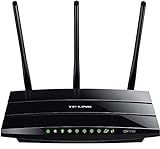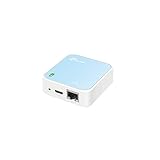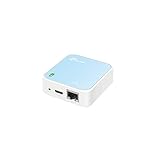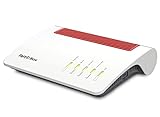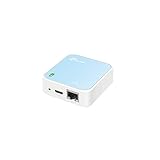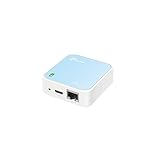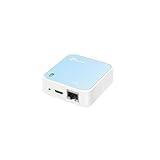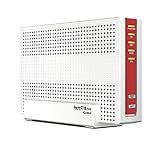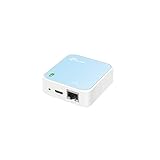TP-Link TL-WR802N vs TL-WR902AC - Where are the differences?
Where are the differences?
Let's take a look at the two routers TL-WR802N* and TL-WR902AC* from the TL-WR802N brand and compare the differences.
For which connections are the routers suitable?
Basically, you can put any router behind any modem, but some routers also have an integrated modem. Does the TP-Link TL-WR802N have a modem installed? Does the TP-Link TL-WR902AC have an integrated modem? The answer to both questions in this case is "No". Neither router has a modem installed.
Which router has the better WLAN?
WiFi 6, also called AX, is currently the newest standard in WLAN. The higher the standard, the better. The two models from this comparison both do not support AX.
AC is the name for WiFi 5. Most often it comes in combination with WiFi 4 and is advertised as AC+N. If a device offers AX, it usually supports the older standards as well. WiFi 5 is only supported by the TP-Link TL-WR902AC* in this comparison.
The WiFi 4 standard is also referred to as "N". If a device can do AX or AC, then it can usually do WiFi 4 (N). Here only the TP-Link TL-WR902AC* WiFi 4.
To offer more performance, some routers offer so-called dual band. In this case the router transmits on two frequencies. With the devices from the comparison you get this option only with the TP-Link TL-WR902AC.
Triband is an optimization of the dual band. Here it is sent on three channels to achieve more power. However, you have to do without the triband for both routers from the comparison.
Let's have a look at the maximum data rate. In total, the TP-Link TL-WR902AC* with 433 + 300 Mbit/s performs better here. The TP-Link TL-WR902AC offers 433 + 300 Mbit/s.
Which router has more antennas?
There are routers with internal antennas and routers with external antennas. However, more antennas do not necessarily mean more performance. In this context, the maximum data rate and WiFi standards must be considered.
Both routers have 2 internal antennas. Internal antennas have a fixed position. The direction of the radiation can thus not be changed easily.
There are no external antennas on either router. The advantage of external antennas is that they can be rotated. Thus, the direction of the radiation can be determined.
Comparison of connections
Let's take a look at the connectors from the TP-Link TL-WR802N and TP-Link TL-WR902AC. Both of the routers have 100 Mbit LAN ports. The number does not differ. We have 1 of them.
Gigabit LAN ports have none of the two devices from the comparison.
In addition to the LAN, some routers also have a WAN interface. If this is not available, a LAN port must be used to connect the modem. In this comparison, that is the case. Neither the TP-Link TL-WR802N, nor the TP-Link TL-WR902AC have a WAN port.
Let's move on to the ISDN connection. In the meantime, this is hardly necessary and therefore also available in few devices. Both devices in the comparison do not have ISDN installed.
Functions of the routers in comparison
.Let's take a look at the function from the TP-Link TL-WR802N and TP-Link TL-WR902AC in comparison.
media server (NAS): With the TP-Link TL-WR902AC* you get a media server, also called NAS. With this NAS feature, you can store media on the device itself or on the network and manage it through the router.
WLAN Repeater: Some routers can also be used simply as repeaters. So you can amplify the signal of another router. Especially if you have several floors, this is interesting, because strong ceilings can interfere with the signal. Both models trump with a repeater function in this comparison.
WPS: With WPS, we stay on the topic of WLAN. WPS stands for "Wi-Fi Protected Setup". Here it concerns the simpler connection of devices to the WLAN. As a rule, this is done without the password. With the TP-Link TL-WR802N and the TP-Link TL-WR902AC you have to do without the practical WPS function.
DECT: With the help of DECT, DECT phones can be connected directly to the router. Thus, the router provides a convenient phone solution. There is no DECT function in either of the selected models.
IPv6: In case you're not aware - IP addresses with four blocks are running out, which is why the IPv6 standard was developed. Private households usually get only public IPv6 address. These must be supported by the router of course. There are some positive news for the models in this comparison. Both routers can work with IPv6.
